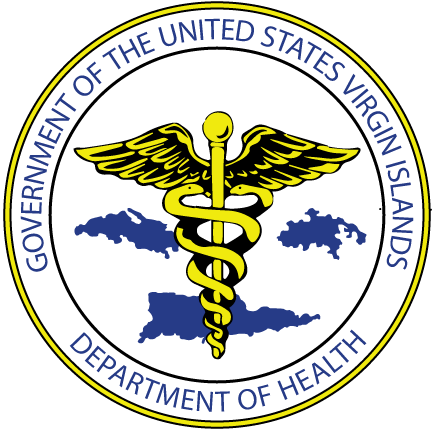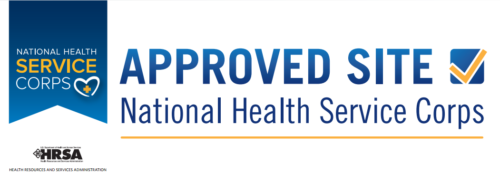In a prerecorded public address, Commissioner of Health, Michelle S. Davis, PhD, said:
Today, the Department of Health (DOH) is reporting the first baby born in the U.S. Virgin Islands with Zika- related microcephaly, as confirmed by CDC testing. We are saddened to report this case; however, we are not surprised due to the high rate of local transmission in the territory. The DOH stands ready to provide services to women, infants and families affected by the Zika virus.
UNITED STATES VIRGIN ISLANDS
DEPARTMENT OF HEALTH
_________________________________________________________
FOR IMMEDIATE RELEASE
May 12, 2017
DOH Reports First Microcephaly Case in the USVI
In a prerecorded public address, Commissioner of Health, Michelle S. Davis, PhD, said:
Today, the Department of Health (DOH) is reporting the first baby born in the U.S. Virgin Islands with Zika- related microcephaly, as confirmed by CDC testing. We are saddened to report this case; however, we are not surprised due to the high rate of local transmission in the territory. The DOH stands ready to provide services to women, infants and families affected by the Zika virus. Although one case is too many, we must continue to remain vigilant in preventing infection through mosquito bites and unprotected sex; especially to pregnant women. Avoiding mosquito bites is the best way to prevent getting Zika. This can be accomplished by Dress, Drain, Defend; Dress-Wearing Long sleeved shirts, long pants; Drain-eliminating standing water in and outside of the home; Defend-use of repellents, bed nets, condoms, and screens on windows and doors. The USVI Department of Health continues to collaborate closely with other governmental agencies as well as with private sector partners and is appreciative of their support in our fight against Zika. The Department of Health is committed to providing support to this family and any other family affected by this virus, through our Maternal & Child Health Services. You can call our Zika Hotline for any questions regarding Zika prevention or learn more about our free services for pregnant women. The number is 340-712-6205.
Recognizing that Zika is a cause of certain birth defects does not mean that every pregnant woman infected with Zika will have a baby with a birth defect. It means that infection with Zika during pregnancy increases the chances for these outcomes.
Locally, out of the 232 recorded Zika positive pregnant women, in the territory, there have been 105 births, one (1) of which had Zika-associated microcephaly case. Additionally, the US Virgin Islands has had one (1) Zika-associated fetal loss with birth defects. Per Puerto Rico’s Department of Health, out of the reported 3,528 pregnant women who have tested positive for Zika, there have been 29 infants born with Zika-associated birth defects, to date. Per the Centers for Disease Control & Prevention (CDC), nationally there have been 1,409 births (born to Zika positive women) in the United States, 58 infants born with Zika-associated birth defects, and eight (8) fetal losses with Zika-associated birth defects. Birth defects reported include microcephaly, eye abnormalities, and hearing problems, among others.
The USVI DOH is continually monitoring case reports and outcomes based on two (2) systems, (1) Care Coordination/Assessments and (2) Follow Up. Derval Petersen, PhD, Director of Maternal & Child Health and Children with Special Health Care Needs (MCH), explained, “care coordination is a system of patient/family centered care to connect the clients to services as needed, which may consist of audiology, neurology, vision testing and psychology.” She added, “MCH will follow affected families through CDC established developmental guidelines, to insure the babies born to Zika positive women are meeting their developmental milestones.”
The USVI Department of Health has been diligently working to educate members of the medical community about the Zika virus infection and its associated health complications. Though typically a mild infection in adults, Zika virus infection can cause a pattern of severe birth defects known as Congenital Zika Syndrome when passed from pregnant women to their unborn children. These birth defects include microcephaly (small head size), developmental disabilities, and vision problems. Clinical representatives from the Department of Health have met with physicians, pathologists, midwives, hospital administrators, maternal-child health nurses, and medical flight crews to discuss the current state of the Zika virus outbreak in USVI and the potential risk of Zika virus infection to pregnant women and their infants.
The Department of Health has provided education to more than 75 health care professionals on St. Thomas and St. Croix, including physicians and nurses at Schneider Regional Medical Center and Juan F. Luis Hospital and Medical Center. A focus of the outreach has centered on how to monitor pregnant women at risk for Zika virus infection, recognizing Congenital Zika Syndrome prenatally and at birth, the initial and long-term management of Congenital Zika Syndrome, and how to report concerns for birth defects to the Department of Health. The DOH has also provided general overviews of the virus, current numbers of reported cases in USVI, and preventive measures to reduce the risk of Zika infection in pregnant women and the community.
Pregnant women are strongly urged to take steps to prevent mosquito bites and protect themselves from sexual transmission of Zika throughout their entire pregnancy. If you are pregnant and showing symptoms of Zika, such as a fever, rash, red eyes, joint/muscle pain or headache, immediately talk to your doctor or healthcare provider. The DOH encourages pregnant women to take advantage of the following FREE products and services:
- Zika testing at 12 locations throughout the islands (Click here for a listing)
- Zika Prevention Kit (ZPK) containing educational materials, insect repellent, permethrin, condoms, dunks to treat standing water, and a bed net.
Download: Fact Sheet for Pregnant Women
There is no vaccine or medicine for Zika. Zika is spread to people primarily through the bite of an infected mosquito. A pregnant woman can pass Zika to her fetus during pregnancy or around the time of birth. Men and women with Zika can pass it to their partners through sexual contact.
DOH reminds residents that Zika is still being spread by mosquitoes in the territory. You can be infected and not even know it; that’s why everyone should take steps to prevent the spread of Zika. We can all help stop Zika. You can do your part with three simple steps.
- Dress: Wear light colored long sleeves and long pants
- Drain: Once a week, remove standing water to get rid of places where mosquitoes lay eggs.
- Defend: To prevent the spread of Zika through sex, use a condom every time you have sex if you or your partner is pregnant. Also use an insect repellent with DEET, picaridin, IR3535, oil of lemon eucalyptus (OLE), para-menthane-diol (PMD), or 2-undecanone to prevent mosquito bites.
There is ongoing collaboration with the Department of Tourism and other government and private agencies to provide updated information and to identify and eliminate mosquito breeding places in communities. Additionally, hotels and resorts have trained employees in vector-reducing activities.
For questions about Zika in USVI or to receive any of the DOH’s free services, please call the DOH Emergency Operations Center at 340-712-6205 or visit http://doh.vi.gov.
###

